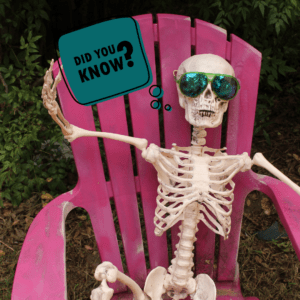Every mum has said it – it’s important to eat your greens! 🌿
And what better time to give it a try than right now? November 1st was World Vegan day 🥗, and Cancer Research UK has started the Veg Pledge Challenge 🥦!
The challenge is to go meat-free for one month and help fundraise for life-saving cancer research. On their website you’ll find recipes, information, answers to common questions and more. You can pledge either to try out veganism or vegetarianism for this great cause.
So, what’s the big deal about eating your greens 🤔?
This week, we want to talk a little bit more about the role of veggies in our diet and how reducing meat could help with your health, as well as learning more about what meat-exclusionary diets entail.
Vegetarian vs Vegan 💁♀️
Let’s start with the difference between being vegetarian and being vegan.
A vegetarian does not eat meat or fish but can continue to eat animal products like eggs and dairy 🍳 (milk, cheese, etc). A vegan, on the other hand, excludes all animal products from their diet. If you don’t eat meat but do include some fish in your diet, this is known as a pescatarian diet 🐟.
When it comes to veganism, there are different schools of thought about what to include on the list of animal products – many vegans, for instance, exclude honey from their diet 🍯, as it’s produced by bees 🐝. But not all vegans feel the same way. In general, vegans will avoid things like eggs and dairy as well as meat and fish.
Are there benefits to not eating meat?
Yes! Both for your health and for the environment. Here’s what you need to know:
Health benefits
Eating more fruit and vegetables as the staple of our diet is healthy for us, and most adults don’t eat enough of these!
Processed and red meat, on the other hand, are linked to bowel cancer, so reducing either of these can be beneficial for avoiding this type of cancer.
Also, according to studies, evidence has been found that a vegetarian diet is associated with a lower risk of death from ischemic heart disease ❤️, and vegetarians often have lower low-density lipoprotein cholesterol levels, lower blood pressure, lower rates of hypertension and lower rates of type 2 diabetes than meat eaters.
Vegetarians also tend to have a lower body mass index, lower overall cancer rates and lower risk of chronic disease.
That’s a lot of health benefits to consider! 🙌
But remember that it’s not always the case that something vegetarian or vegan is healthy! Processed meat replacement foods, limiting the range of fruits and vegetables you eat, or eating a lot of sugary foods, can still be unhealthy choices. Reducing meat is a great way to start, but make sure you are still choosing fresh options instead of processed foods, and integrating plenty of variety into your diet, for healthier eating.
Environmental benefits
Factory farmed meat accounts for some of the worst environmental effects taking place on our planet 🌏. Livestock farming as an industry is a big polluter and eating a veggie diet can mean 2.5 x less carbon emissions than a meat diet.
So, you might consider greenhouse gas emissions, land use, freshwater use and water pollution as side effects of eating a lot of meat – all of these are an essential part of making a meat-eating diet possible. By trading in for more vegetables, you can do your part to reduce your carbon footprint 🦶, as well as improving your health.
Do your best to select locally sourced produce where possible, or get stuck into creating your own gardened veggies 🌱! This goes even further towards reducing your carbon footprint while eating things that are good for you.
A quick, easy and cheap vegetarian recipe…
Coconut and peanut aubergine curry 🍛
A recipe like this one is very quick to prepare (less than 30 minutes!) and easily feeds the whole family, even on a budget. You can always make extra and freeze it for when you aren’t in the mood to cook. Just bung it in the microwave and you’ve got yourself another great meal in no time.
What you’ll need:
· Oil for frying 🍳
· 2x aubergines, chopped into large chunks 🍆
· 2x onions, chopped 🧅
· 2x garlic cloves, crushed 🧄
· 5cm piece of ginger, finely grated
· 1 tsp cumin seeds
· 1 tsp coriander seeds, crushed
· 1 tsp turmeric
· ½ tsp chilli powder 🌶
· 400ml coconut milk 🥥
· 1tbsp peanut butter 🥜
· Naan breads or rice to serve 🍚
· Fresh coriander to serve (optional)
Method:
Heat 1 tbsp oil in a pan. Cook the aubergine until golden and soft. Add another tbsp of oil if you need it. Scoop out once they are done and set aside.
Add the onion to the same pan and cook until soft and golden. Add garlic and ginger and cook for a minute. Add the spices and cook for 2 minutes.
Tip in the coconut milk and peanut butter. Simmer this gently until the peanut butter dissolves. Add the aubergine back and simmer for 15 minutes. Stir through some coriander and serve with naan bread or rice.
And voila! Easy as that. You’ll have a warming veggie-based meal fit for the family in no time.
Find a lot more cheap and easy vegetarian recipes here.
We hope you’ll join us on the Veg Pledge Challenge! Sign up and help fundraise for a good cause, while also doing wonders for your health. And you don’t have to commit to eliminating all meat or fish all at once – start by setting yourself an easier target if you need to, like only eating meat a few times a week. By making a reduction, you can put more balance back into your diet and do the earth a favour, all at once!





